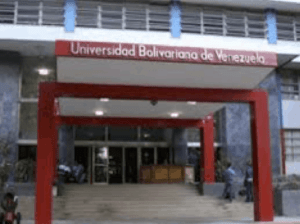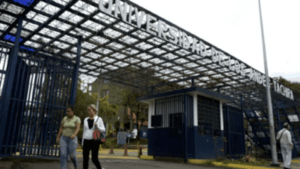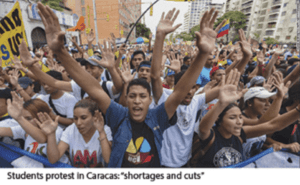February 1st, 2019

Venezuela’s deep political and economic crisis is in recent news headlines with reports on daily protests, violent repression of those opposing the Madura presidency, fomenting international tensions. For an unbiased analysis of the current situation in Venezuela, click here. In this week’s blog post, we take a look at Venezuela’s education system and how it has been impacted by the crisis.
For decades, Venezuela’s standard of education had been ranked among the highest in the region. And, although the country’s education system is overextended and underfunded, the government had remained committed to the vision that every citizen is entitled to a free education.
The Ministry of Education was and still is the authority responsible for oversight and regulation of education in Venezuela which is highly centralized. Students are required to attend school from the age of 6 and complete the first cycle known as basic education (educación básica) which is free and compulsory. After which, they can continue onto secondary school (educación media diversificada) for another two years and receive the bachiller. Secondary students also have the option to pursue a two-to three-year specialized curriculum (educación media profesional) that leads to the award of a technical degree.
Under the 1999 constitution, higher education in Venezuela remains free with access to more than 90 institutions of higher education. Caracas is an educational center and home to several notable universities, including the Central University of Venezuela (founded in 1721) and the National Open University (1977). Other prominent state institutions are the University of Zulia (1936), the University of Carabobo (1852), and the University of Andes in Merida (1810).
Once among the top countries in the region for its strong education system, we can see the negative effects the economic crisis has and continues to have on Venezuela’s institutions of higher education. A 2015 report from Associated Press recounted that many faculty members were quitting jobs as they were unable to support themselves on government-mandated salaries that are as low as the equivalent of US$30 a month. According to the article, the Central University of Venezuela lost 700 faculty members out of a total 4,000, an exodus that begun four years prior to 2015. The situation has not improved.
Tense relations between U.S. and Venezuela has also hurt study abroad and student exchange programs. In September 2018, the U.S. issued a presidential proclamation outlining new restrictions to the travel ban for nationals of eight countries that include Chad, Libya, Iran, North Korea, Somalia, Syria, Venezuela and Yemen — and also recommended that nationals from Iraq be subjected to additional scrutiny. The restrictions imposed by the travel ban have made it difficult for Venezuelans to obtain visas as students, tourists, or for business. To see how the travel ban and the latest restrictions have affected the number of visas issued to Venezuelan students, click here. A recent article in PIE News includes an interview with an educational counseling service based in Miami, FL that assists Venezuelan students, offers a bleak perspective on the current situation.
The interactive chart on World Inequality Database on Education created by UNESCO Institute for Statistics provides an up-to-date glimpse on the state of primary and secondary education in Venezuela.
We highly recommend this in-depth article about the state of higher education in Venezuela, the continued exodus of university faculty, and the Bolivarian University of Venezuela that was founded 15 years ago during Hugo Chavez’s presidency as an institution of higher education intended to be more inclusive and afford access to the underprivileged and poor, which too is suffering under the strains of economic austerity.

There are also reports of massive desertion of students from universities. One report in 2017 said that close to 50% of university students had dropped out of the three public universities in Táchira.

It’s not only public universities experiencing faculty and student desertions; private universities too report students dropping out and leaving the institutions. Not only do students and faculty blame the economic crisis for their decisions to leave the institutions but they also claim lack of academic freedom and university autonomy as additional reasons for their departure.

We will continue to post updates on Venezuela’s education system as information becomes available.
Sources:
Encyclopedia Britanica https://www.britannica.com/place/Venezuela/Education
The Nation https://www.thenation.com/article/how-severe-is-venezuelas-crisis/
PIE News https://thepienews.com/news/education-agency-venezuela-calls-for-industry-support/
The New York Times https://www.nytimes.com/2019/01/30/world/americas/venezuela-maduro-protests-faes.html?rref=co
US Department of State: https://www.state.gov/r/pa/ei/bgn/35766.htm
World Inequality Database on Education: https://www.education-inequalities.org/countries/venezuelarb/indicators/eduout_upsec#?dimension=all&group=all&age_group=|eduout_upsec&year=|2000UNESCO
Washington Office on Latin America: https://venezuelablog.org/higher-education-venezuela-skirting-university-autonomy-creation-parallel-system/

The Academic Credentials Evaluation Institute, Inc. (ACEI), was founded in 1994 and is based in Los Angeles, CA, USA. ACEI provides a number of services that include evaluations of international academic credentials for U.S. educational equivalence, translation, verification, and professional training programs. ACEI is a Charter and Endorsed Member of the Association of International Credential Evaluators. For more information, visit https://acei-global.org/.


